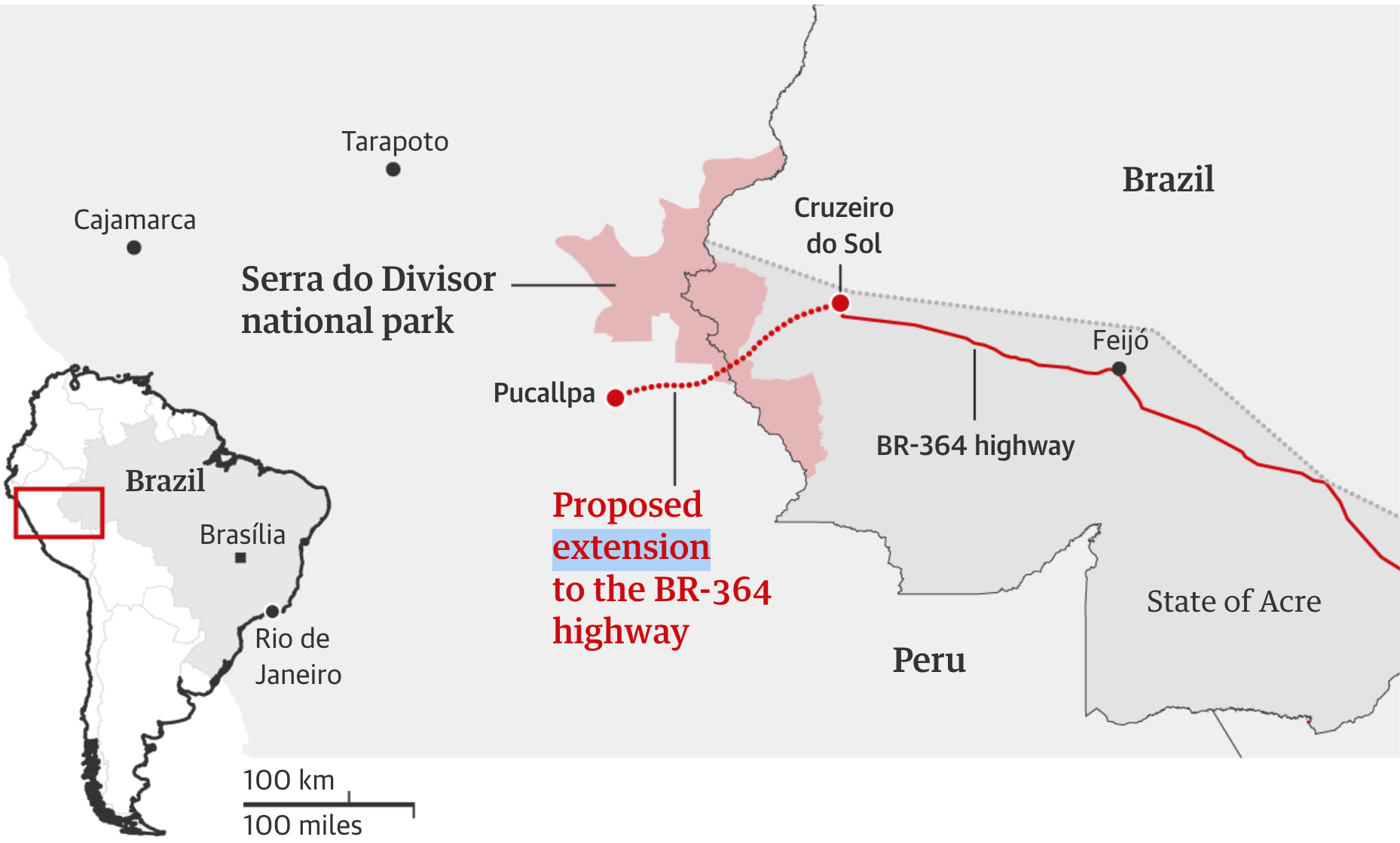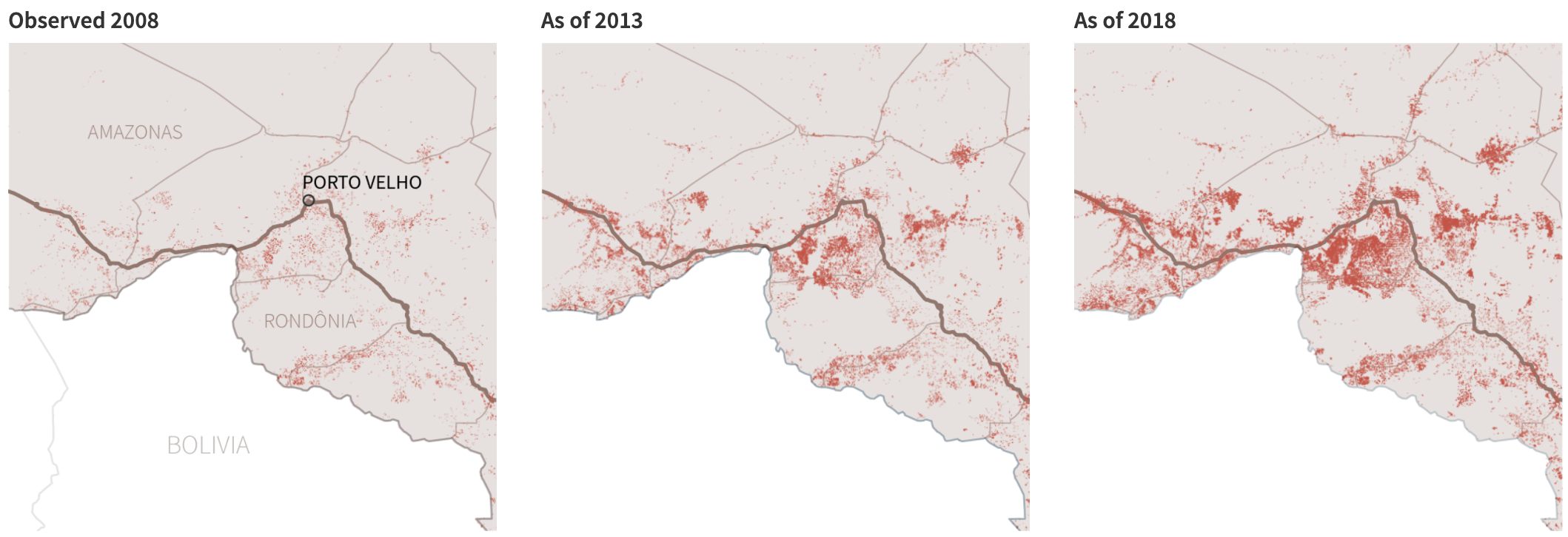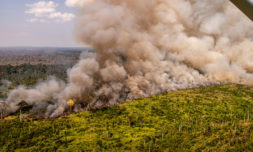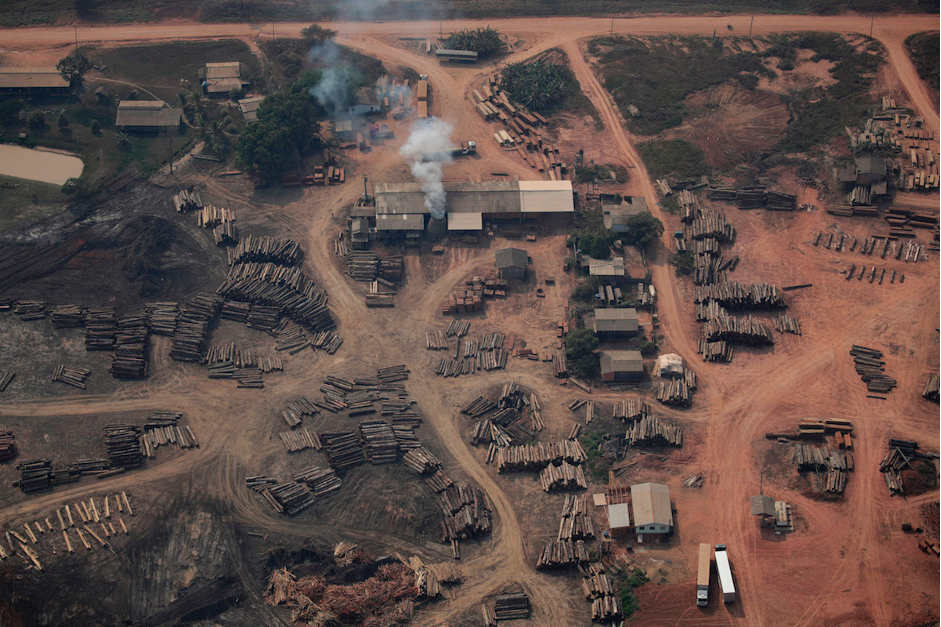Plans to bulldoze a 94-mile highway through a biodiverse corner of the Amazon have been backed by President Bolsonaro, despite fears it could have catastrophic consequences for Brazil’s environment.
Researchers are warning of severe climate repercussions if the Brazilian government proceeds with plans to pave a 94-mile highway through Serra do Divisor national park, one of the Amazon rainforest’s most biodiverse regions.
An extension of the BR-364 (a 2,700-mile highway which links São Paulo with the Amazon state of Acre), the road is intended to line the Peruvian border, connecting towns Cruzeiro do Sul in Brazil, and Pucallpa in Peru.
Though activists are voicing alarm over the ‘transoceanic’ project’s undoubtedly catastrophic consequences for Brazil’s environment, the area is also home to at least three indigenous communities (Nukini, Jaminawa, and Poyanawa) who are likely to be displaced if construction goes ahead. This does not include the potentially isolated tribes with whom no contact has been made.

Unfortunately, however, President Bolsonaro is firmly backing the idea, contending that it will boost the remote region’s economy by creating a transport hub through which agricultural products can be shipped to Pacific ports in Peru and on to China.
Mara Rocha, a centre-right congresswoman from Acre, is also in favour of the project, believing it won’t destroy the forest, but will ‘bring critical sustainable development to a region forgotten and invisible to the rest of the country by heating up commercial and cultural relations with Peru.’
But opponents are right to fear such plans, particularly in the aftermath of 2019’s devastating wildfires which ravaged almost one million hectares of precious natural land and sparked a global outcry regarding the lack of action from Brazil’s government who instead defended their environmental policies and right to develop territory.






















